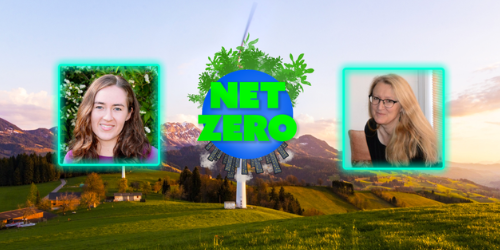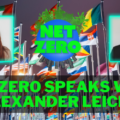This month audiences can screen Net Zero Speaks with Tina Grotzer. This film is curated for the Planet Classroom Network by the Protect our Planet Movement and Planet Classroom.
Learning how to learn in an effective and impactful way can improve problem solving skills and help society combat global challenges such as the climate crisis.
Professor Tina Grotzer is a Harvard cognitive scientist whose research identifies ways in which understandings about the nature of causality impact our ability to deal with complexity in our world. In Net Zero Speaks with Tina Grotzer, Climate Activist Michele Whiting discusses with Grotzer effective ways to make the transition to Net Zero more inclusive as well as shift mindsets from short-term to long-term thinking.
The Global Search for Education is pleased to welcome Michelle Whiting.
Michelle, tell us first of all why you wanted to interview Dr. Grotzer?
I was inspired by how Dr. Grotzer framed the climate crisis as an issue worthy of hope. I suppose that’s the power of education; it allows you to see pathways for positive change to occur. Dr. Grotzer has researched tangible ways in which we can help students learn how to be more innovative and creative. These are qualities we will certainly need in addressing the climate crisis.
Any surprises in the interview that perhaps changed your perspectives on Climate education?
I was pleasantly surprised that there was crossover between some of the research Dr. Grotzer brought up in our conversation and what I’m currently learning as a graduate student in a design thinking class. It is incredible that teenagers who are able to engage in creating complex “what if” narratives about their world have more sophisticated brain development. This made me appreciate all the “How might we…” questions I have been working on in class.
How would you describe your main takeaways from the interview?
I’d say my main takeaways from interviewing Dr. Grotzer are first that “Learning how to learn” is a worthwhile endeavor, and could lead to innovative problem solving that helps your community address complex issues. There are examples we can point to in history, where people have come together and been successful in their pursuit of finding solutions to significant environmental challenges. Looking to these examples provides hope and can also help us navigate the current environmental challenges we face. Finally, I used to think that envisioning a better world was the first step in creating a better world. After speaking with Dr. Grotzer, I see the importance of first supporting people in developing the ability to envision new solutions. Once we learn how to do this, it opens up so many possibilities.
Thanks Michelle!
C.M. Rubin and Michelle Whiting
Don’t Miss Net Zero Speaks with Tina Grotzer, now streaming on the Planet Classroom Network. This film is curated for the Planet Classroom Network by the Protect Our Planet Movement and Planet Classroom.







Recent Comments